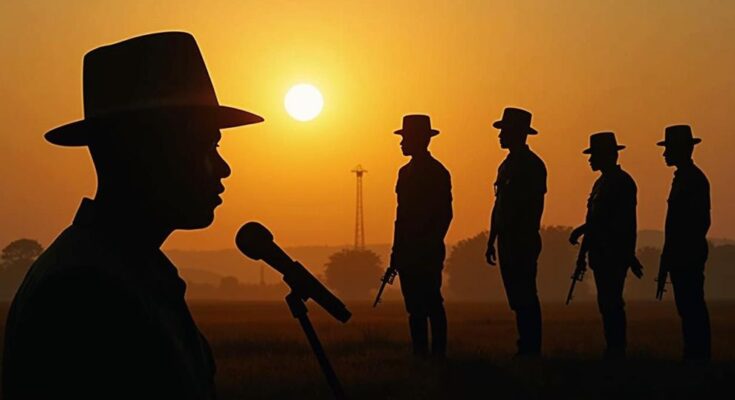South Sudan’s President Salva Kiir has dismissed long-serving intelligence chief Akol Koor Kuc, replacing him with ally Akec Tong Aleu. This decision signals an attempt to consolidate power amidst criticism over election delays and the controversial role of the National Security Service in suppressing dissent. The political atmosphere remains fraught with challenges, particularly between Kiir and Riek Machar, impacting the ongoing peace process.
In a significant reshuffle within South Sudan’s security apparatus, President Salva Kiir has relieved Akol Koor Kuc, the country’s long-serving intelligence chief, from his position. This dismissive action, announced by the state broadcaster SSBC and backed by a presidential decree, replaces Kuc with Akec Tong Aleu, a close ally of Kiir. Koor Kuc has led the internal security bureau of the National Security Service (NSS) since South Sudan’s independence in 2011, an agency criticized for its excessive power and impunity towards dissenting civil society and activists. This change in leadership occurs in a context of political instability, as the transitional government had recently announced another delay in planned elections, extending the transitional period by an additional two years. This extension has garnered criticism from the United States and various international stakeholders invested in South Sudan’s peace process, particularly following the previously postponed elections in 2022. Despite attempts to reach government spokespersons and the president’s office for comments, there has been no response. Analysts have interpreted Kiir’s decision to dismiss Koor Kuc as a maneuver within an ongoing power struggle at high government levels. Boboya James, a policy and security analyst, noted, “There has been a lot of reckoning in terms of what to do with Akol Koor. The president does not wish for rapid decisions to disrupt national security. Now, with the extension of the peace agreement, he intends to consolidate power by integrating loyalists into the government.” Following five years of civil conflict, which officially concluded in 2018, disagreements persist between President Kiir and his deputy, Riek Machar, hindering the nation’s peace process. The authority held by the NSS remains a point of concern among rights groups, including Amnesty International and Human Rights Watch, which have consistently highlighted the agency’s oppressive tactics against those opposing the government.
The political landscape in South Sudan is characterized by ongoing instability and power struggles, particularly since the country gained independence from Sudan in 2011. Following a protracted civil war, peace negotiations led to the formation of a transitional government, which has faced significant challenges, including repeated postponements of planned elections. The National Security Service has been a controversial entity, accused of abuses of power and repression of civil society, which complicates the situation further. The dismissal of Akol Koor Kuc represents a noteworthy event that may illustrate shifts in power dynamics within the current administration and reflect the ongoing struggle for control amid growing discontent against delays in the peace process.
President Salva Kiir’s recent dismissal of intelligence chief Akol Koor Kuc indicates a strategic move to realign the security apparatus amidst ongoing political challenges in South Sudan. The decision underscores the struggles within the government to manage security concerns while attempting to remedy the impact of consecutive electoral delays. With Akec Tong Aleu now appointed as the new intelligence chief, observers will be keen to see how this transitional leadership will influence the political and security landscape as both domestic and international stakeholders continue to scrutinize South Sudan’s peace process.
Original Source: www.usnews.com




